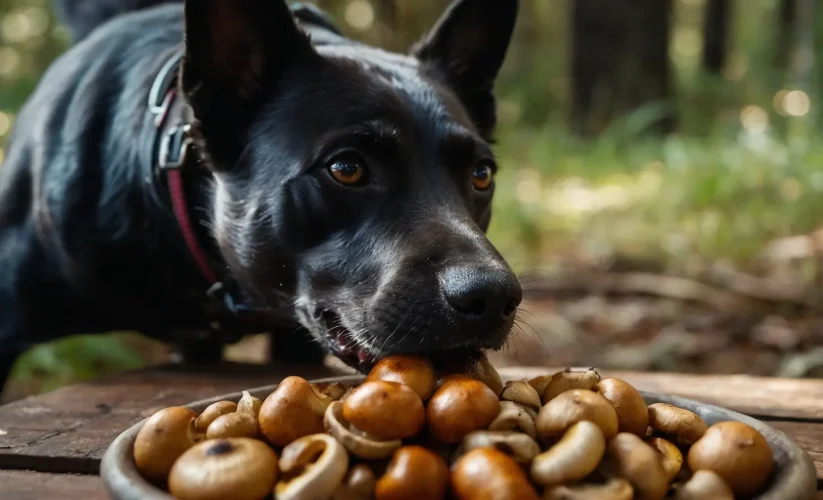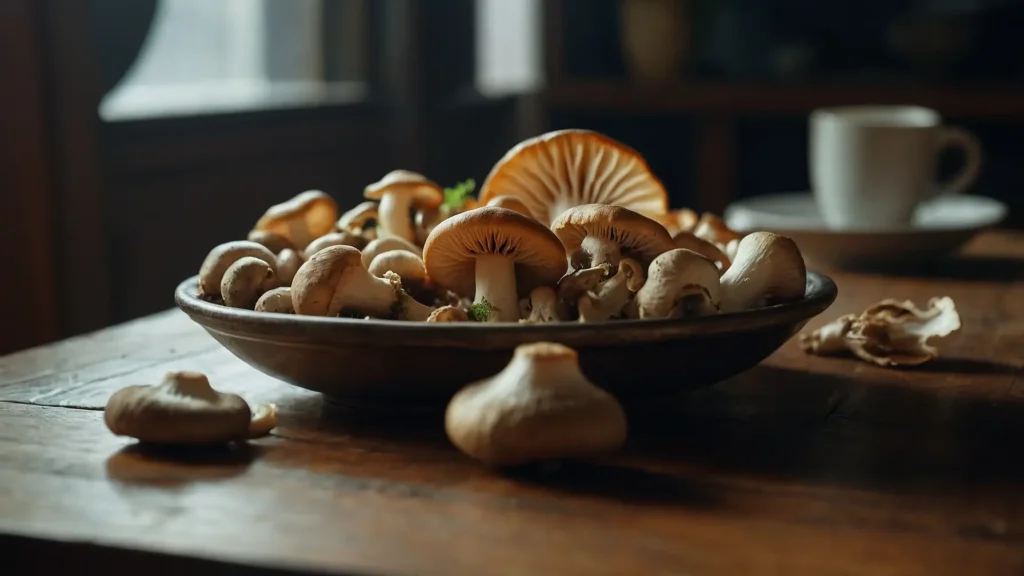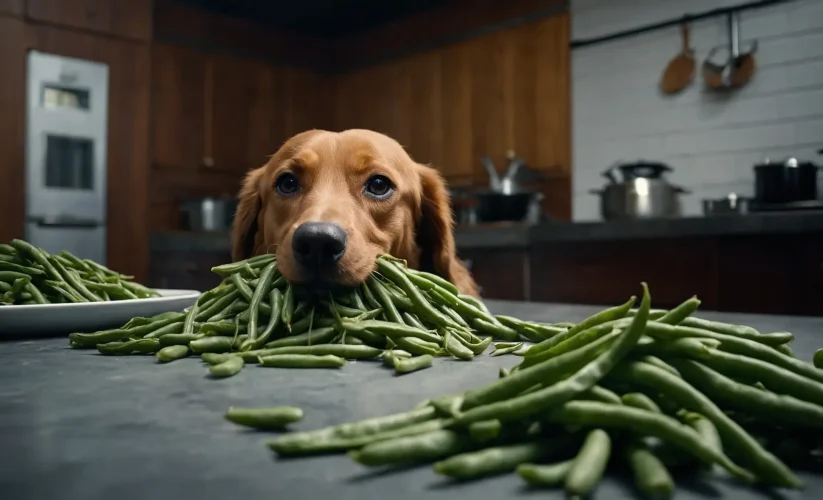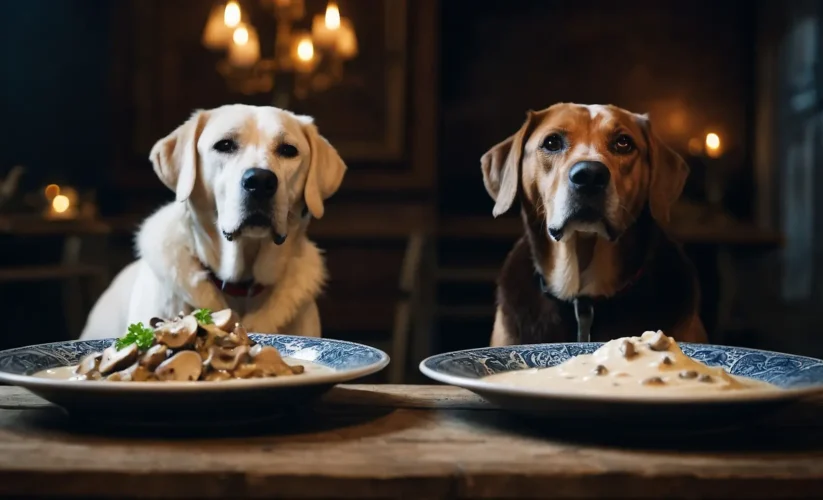Can Dogs Eat Mushrooms?

As a seasoned dog blogger and dedicated dog parent, one question I’ve encountered repeatedly from fellow dog owners is, “Can dogs eat mushrooms?” It’s a question that merits careful consideration, given the complexity of canine nutrition and the diverse range of mushrooms available. Mushrooms, those enigmatic fungi that dot our pizzas, salads, and stir-fries, hold a curious position in both human and animal diets. While they can be a rich source of nutrients for humans, the implications for our canine companions are not as straightforward. In this comprehensive guide, we’ll delve into the benefits and potential hazards of feeding mushrooms to dogs, alongside exploring the safety of other common vegetables in a dog’s diet. Our goal is to provide you with a nuanced understanding of what’s best for your furry friend, based on current knowledge and practical advice.
Is Mushrooms Good for Dogs?
Mushrooms, in their safe and edible varieties, can indeed be good for dogs, offering a spectrum of health benefits. Edible, non-toxic mushrooms are rich in vitamins and minerals such as B vitamins, selenium, potassium, and antioxidants, which can contribute positively to a dog’s overall health. These nutrients support immune function, aid in digestion, and can help reduce inflammation. Specifically, B vitamins are crucial for energy metabolism and maintaining a healthy nervous system, while antioxidants help fight free radicals, reducing the risk of chronic diseases.
Incorporating small quantities of cooked, plain mushrooms into your dog’s diet can be a healthy addition, provided they are the safe types commonly found in grocery stores, such as button, portobello, or shiitake mushrooms. It’s essential, however, to introduce any new food into your dog’s diet gradually and in moderation to monitor for any adverse reactions or allergies.
Is Mushrooms Bad for Dogs?
The flip side of the coin reveals that not all mushrooms are beneficial for dogs, and in fact, some can be downright dangerous. Wild mushrooms, which can be toxic and even lethal to dogs, pose a significant risk. There are thousands of mushroom species, and distinguishing between safe and toxic varieties can be challenging, even for experts. Symptoms of mushroom poisoning in dogs can include vomiting, diarrhea, lethargy, seizures, and in severe cases, liver failure or death.

Therefore, it is crucial to keep dogs away from areas where wild mushrooms might grow, especially during the wetter months when mushrooms tend to proliferate. If you suspect your dog has ingested a wild mushroom, immediate veterinary attention is necessary. To err on the side of caution, dog owners should avoid feeding their pets mushrooms unless they are certain of their safety and suitability for canine consumption.
Are Other Vegetables Safe For Dogs?
Expanding the dietary horizon for dogs often involves incorporating vegetables, which can be both nutritious and low in calories. Green beans, celery, and carrots are excellent examples of vegetables that are safe and healthy for dogs. Green beans are low in calories and high in fiber, making them a perfect treat for overweight dogs. Celery, similarly, is low in fat and cholesterol and can contribute to freshening a dog’s breath. Carrots are beneficial for a dog’s teeth and are rich in beta-carotene, which is essential for vision.
Onions, however, stand in stark contrast to the aforementioned vegetables. They are highly toxic to dogs and can cause a condition called hemolytic anemia, leading to the destruction of red blood cells. Even small amounts of onions, whether raw or cooked, can be harmful, and symptoms of onion poisoning may not appear immediately.
Final Thoughts
Navigating the world of canine nutrition can be as challenging as it is rewarding. When it comes to mushrooms, the key takeaway is to proceed with caution. Safe, store-bought mushrooms can offer health benefits to your dog when prepared plainly and given in moderation. However, the risk associated with wild mushrooms cannot be overstated, and they should be avoided altogether.
As for other vegetables, green beans, celery, and carrots can be beneficial additions to your dog’s diet, offering a mix of vitamins, fiber, and hydration with minimal calories. However, onions should be avoided at all costs due to their toxic effects on canine health.
In conclusion, while it’s tempting to share our favorite foods with our furry friends, it’s crucial to prioritize their health and well-being. Always introduce new foods gradually, keep a close watch for any adverse reactions, and consult with a veterinarian if you’re unsure about a particular food’s safety. Remember, a well-informed dog owner is a dog’s best friend.










